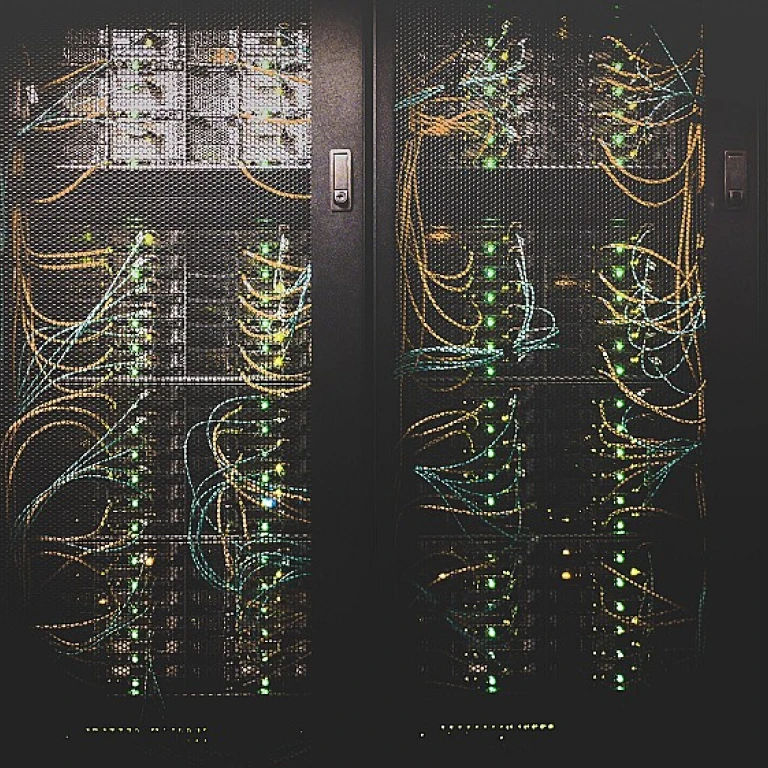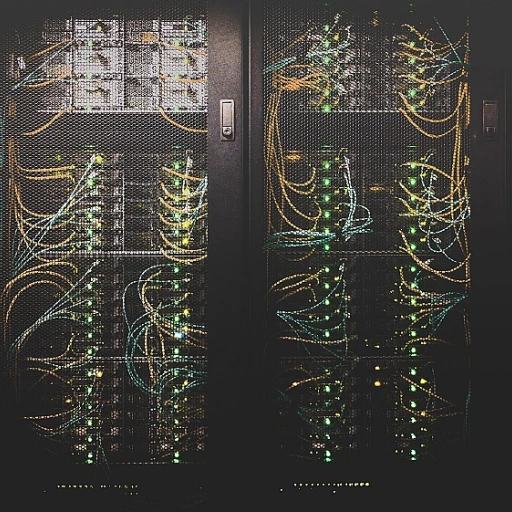
Understanding the Shift from PeopleSoft
Recognizing the Need for Change
In the rapidly evolving landscape of enterprise software, the shift away from PeopleSoft is becoming increasingly prevalent. As companies strive to stay competitive, they are recognizing the limitations of traditional systems like PeopleSoft, which was once a cornerstone in the realm of human resources and enterprise resource planning (ERP). The need for more agile, scalable, and integrated solutions is driving this transition.
Limitations of Legacy Systems
PeopleSoft, while robust in its time, often struggles to meet the demands of modern business environments. The lack of real-time data processing, limited integration capabilities, and the high cost of maintaining on-premises infrastructure are significant drawbacks. Companies are finding that the evolution of software demands more flexible and efficient systems.
Oracle's Role in the Transition
Oracle, the parent company of PeopleSoft, has been steering its customers towards its cloud-based solutions, such as Oracle Cloud and Oracle Cloud HCM. These platforms offer enhanced capabilities, including improved data management, better support, and more frequent updates. However, the transition from PeopleSoft to Oracle's cloud offerings requires careful planning and change management to ensure a smooth migration.
Exploring Alternatives
While Oracle provides a clear path for PeopleSoft customers, other modern alternatives like Workday and Rimini Street are also gaining traction. These solutions promise to deliver more dynamic and cost-effective options for businesses looking to modernize their ERP and human resources systems. Evaluating these alternatives is crucial for companies aiming to leverage the full potential of digital transformation.
Evaluating Modern Alternatives
Exploring Modern Software Alternatives
As businesses contemplate moving away from PeopleSoft, evaluating modern alternatives becomes crucial. The landscape of enterprise software has evolved significantly, offering a variety of solutions that cater to diverse business needs. Companies are increasingly looking towards cloud-based systems, such as Oracle Cloud and Workday, which promise enhanced flexibility and scalability.
These cloud solutions provide a comprehensive suite of tools for human resources, enterprise resource planning (ERP), and data management. They are designed to integrate seamlessly with existing infrastructure, reducing the time and complexity involved in transitioning from PeopleSoft. Furthermore, cloud migration offers the advantage of regular updates and support, ensuring that systems remain current with the latest technological advancements.
Key Considerations for Selecting Alternatives
- Compatibility: Ensure the new system is compatible with existing business processes and infrastructure.
- Scalability: Choose a solution that can grow with your business, accommodating future needs.
- Support and Updates: Opt for systems that offer robust support and regular updates to stay ahead in the competitive market.
- Data Security: Prioritize solutions that emphasize data security and compliance, safeguarding sensitive information.
Companies like Rimini Street provide managed services that can assist in the transition process, offering expertise and support to ensure a smooth shift from PeopleSoft. As organizations evaluate these alternatives, they must also consider the implications of digital transformation and change management, which are integral to successful implementation.
For more insights on navigating IT staffing strategies for compliance in the future, visit this resource.
Challenges in Transitioning
Overcoming the Hurdles of Transition
Transitioning away from PeopleSoft to modern software solutions presents a unique set of challenges for companies. As businesses move towards cloud-based systems, understanding these obstacles is crucial for a smooth transition.
Complexity of System Integration
One of the primary challenges is the complexity involved in integrating new systems with existing infrastructure. Many organizations have deeply embedded PeopleSoft solutions, and moving to a cloud ERP or other modern platforms like Workday requires careful planning. Ensuring compatibility with current systems, such as Oracle Database, and maintaining seamless data flow is essential.
Data Migration and Management
Data migration is another significant hurdle. Transitioning from PeopleSoft involves transferring vast amounts of data, which must be done accurately to avoid disruptions. Companies need to ensure data integrity and compliance with regulations during this process. Leveraging managed services can help mitigate risks associated with data migration.
Change Management and User Adoption
Change management is critical when moving from PeopleSoft to new software. Employees accustomed to the legacy system may resist the change, impacting productivity. Effective training and communication strategies are vital to encourage user adoption and minimize resistance.
Ensuring Continued Support
Another challenge is ensuring continued support during and after the transition. While Oracle support for PeopleSoft remains, moving to a new system requires establishing reliable support channels. Companies may consider partners like Rimini Street for ongoing support and updates.
For businesses navigating this transition, understanding these challenges and planning accordingly can lead to a successful digital transformation. To explore more about how insightful talent solutions can aid in software development, visit Unlocking the Potential of Insightful Talent Solutions in Software Development.
Leveraging Cloud Technologies
Embracing Cloud Technologies for a Competitive Edge
As companies move away from legacy systems like PeopleSoft, leveraging cloud technologies becomes a pivotal strategy. The shift to cloud infrastructure offers numerous advantages, from enhanced scalability to cost efficiency. Businesses can access a range of solutions, including Oracle Cloud and Workday, which provide robust support for enterprise resource planning (ERP) and human capital management (HCM) systems.
Cloud migration is not just about transferring data; it involves a comprehensive digital transformation. This transition allows businesses to modernize their operations, ensuring they remain competitive in a rapidly evolving market. By adopting cloud ERP solutions, companies can streamline their processes, improve data management, and enhance overall system performance.
Benefits of Cloud Infrastructure
- Scalability: Cloud systems allow businesses to scale their operations up or down based on demand, providing flexibility and cost savings.
- Automatic Updates: With cloud solutions, companies benefit from regular updates, ensuring they always have access to the latest features and security enhancements.
- Improved Collaboration: Cloud platforms facilitate better collaboration across teams, enabling seamless communication and data sharing.
- Cost Efficiency: By reducing the need for on-premises infrastructure, businesses can lower their operational costs significantly.
For PeopleSoft customers, transitioning to cloud-based systems like Oracle Cloud or Rimini Street's managed services can provide a more agile and responsive IT environment. This shift not only enhances business operations but also supports long-term growth and innovation.
Addressing Challenges in Cloud Migration
While the benefits are clear, transitioning to the cloud is not without its challenges. Companies must consider data security and compliance, ensuring that sensitive information is protected throughout the migration process. Additionally, effective change management is crucial to minimize disruptions and ensure a smooth transition.
By carefully planning and executing their cloud migration strategy, businesses can overcome these challenges and fully realize the potential of cloud technologies. This strategic move will position them for success in the future of software development.
Ensuring Data Security and Compliance
Safeguarding Data in the Digital Age
As businesses transition away from PeopleSoft and explore modern alternatives, ensuring data security and compliance becomes a critical concern. The shift to cloud-based solutions like Oracle Cloud or Workday introduces new challenges and opportunities in managing sensitive information. Companies must prioritize robust security measures to protect their data from potential breaches and unauthorized access.
Compliance in a Cloud-Driven World
With the rise of cloud ERP systems, maintaining compliance with industry regulations is more crucial than ever. Organizations must ensure that their cloud infrastructure adheres to standards such as GDPR, HIPAA, and others relevant to their sector. This involves regular audits and updates to security protocols, ensuring that the systems remain compliant as regulations evolve.
Data Integrity and Management
Data integrity is a cornerstone of effective business management. As companies migrate from PeopleSoft to cloud-based systems, they must implement strategies to maintain the accuracy and reliability of their data. This includes establishing clear data governance policies and leveraging managed services to oversee data management processes.
Leveraging Advanced Security Technologies
To enhance data protection, businesses are increasingly turning to advanced security technologies. Solutions such as encryption, multi-factor authentication, and intrusion detection systems are essential in safeguarding data within cloud infrastructures. These technologies help mitigate risks and ensure that sensitive information remains secure.
Building a Culture of Security Awareness
Beyond technological solutions, fostering a culture of security awareness within the organization is vital. Employees should be trained on best practices for data security and the importance of compliance. This proactive approach helps mitigate human error, which is often a significant factor in data breaches.
Future Trends in Software Development
Embracing the Future of Software Development
As businesses transition away from legacy systems like PeopleSoft, they must stay ahead of emerging trends in software development. The landscape is rapidly evolving, with several key trends shaping the future.
AI and Machine Learning Integration
Artificial Intelligence (AI) and Machine Learning (ML) are no longer just buzzwords; they are becoming integral to modern software solutions. Companies are leveraging AI to enhance decision-making processes, automate routine tasks, and improve customer experiences. This shift is evident in systems like Oracle's cloud infrastructure, which incorporates AI to optimize performance and efficiency.
Cloud-First Strategies
Cloud technologies continue to dominate the software landscape. Businesses are increasingly adopting cloud-first strategies, moving away from traditional on-premises solutions. This trend is driven by the need for scalability, flexibility, and cost-effectiveness. Cloud ERP systems, such as those offered by Oracle Cloud and Workday, provide robust solutions for human resources and enterprise resource planning (ERP) needs.
Focus on Data Security and Compliance
With the rise of digital transformation, data security and compliance have become paramount. Companies must ensure that their systems adhere to stringent security standards to protect sensitive information. This is particularly crucial for PeopleSoft customers transitioning to cloud-based solutions. Oracle support and managed services play a vital role in maintaining compliance and safeguarding data.
Enhanced User Experience
User experience is at the forefront of software development. Modern systems prioritize intuitive interfaces and seamless interactions. This focus on user-centric design is essential for driving adoption and satisfaction. As companies move from PeopleSoft to newer platforms, ensuring a smooth user experience is critical for successful change management.
Continuous Updates and Support
In the fast-paced world of software, continuous updates and support are crucial. Businesses need systems that can adapt to changing requirements and provide regular updates to stay competitive. Rimini Street and other support providers offer valuable services to help companies manage these updates efficiently.
In conclusion, the future of software development is dynamic and full of opportunities. By understanding and embracing these trends, businesses can navigate the transition from PeopleSoft and position themselves for success in the digital age.





-large-teaser.webp)









